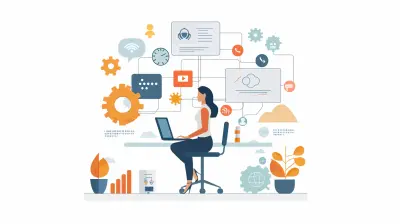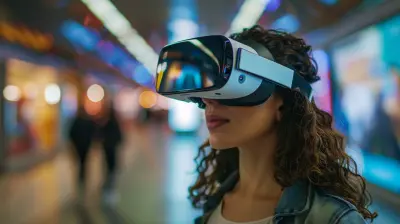How AI is Revolutionizing Healthcare
30 September 2025
Artificial Intelligence (AI) isn’t just some sci-fi fantasy anymore—it’s here, and it’s transforming the healthcare industry in ways we could only dream about a decade ago. From diagnosing diseases in mere seconds to predicting patient outcomes with data-driven accuracy, AI is literally rewriting the rulebook of modern medicine.
This isn’t just a tech trend—it’s a full-blown paradigm shift. Whether you're a healthcare professional, a tech enthusiast, or someone who just wants to know what the heck is going on with all this AI chatter, buckle up. We're diving deep into how this digital brainpower is shaking up the world of stethoscopes and scalpels.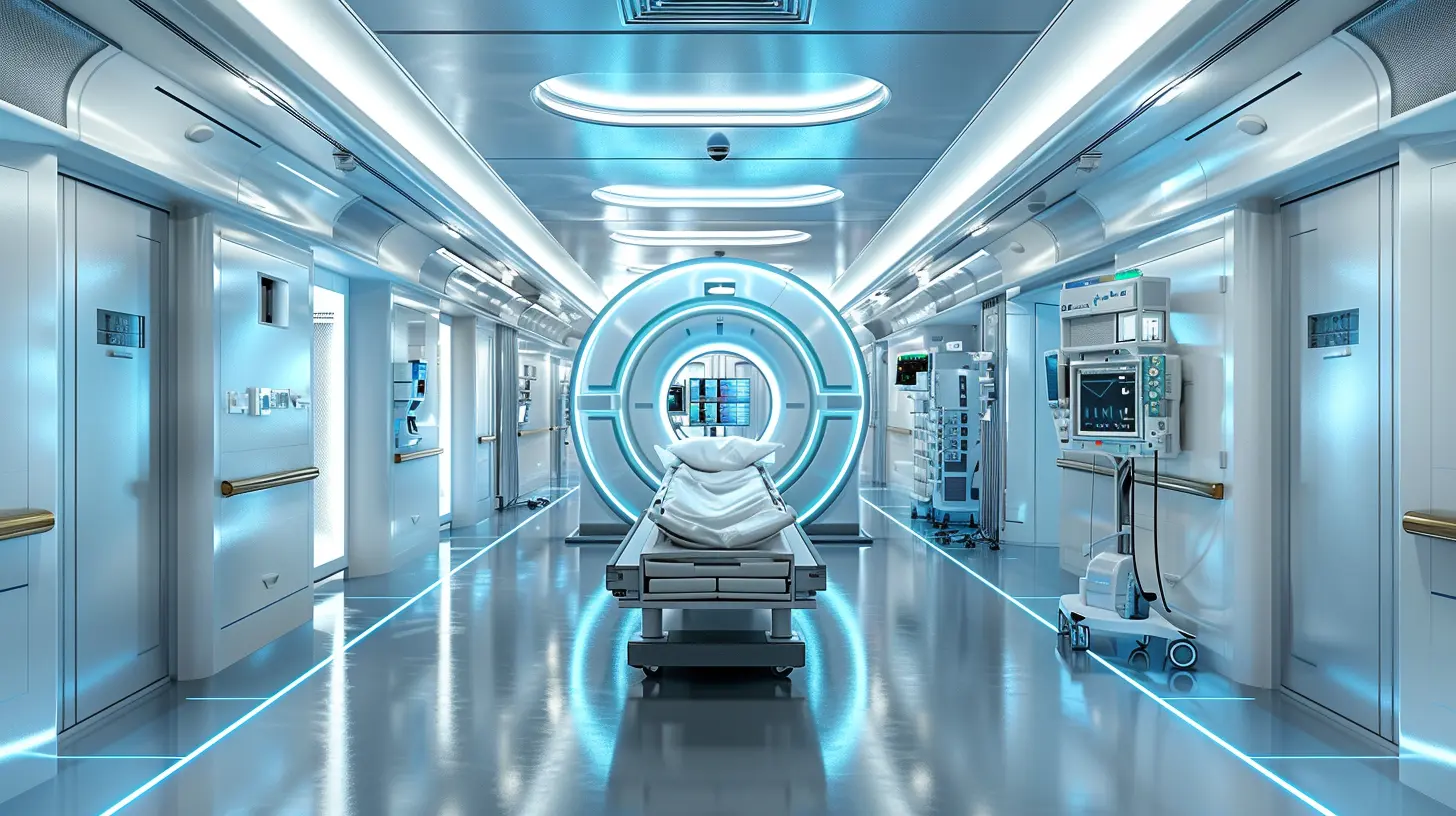
What Is AI in Healthcare, Anyway?
Alright, before we go full geek-mode, let’s get the basics out of the way. AI in healthcare refers to the use of machine learning algorithms, deep learning, and other forms of artificial intelligence to analyze and interpret complex medical data. But it’s not just about crunching numbers—AI learns from patterns. It gets smarter with every data point, like a doctor who remembers every case they've ever seen, times a million.Think of AI like a super-smart intern who never sleeps, gets better every day, and doesn’t forget anything—ever.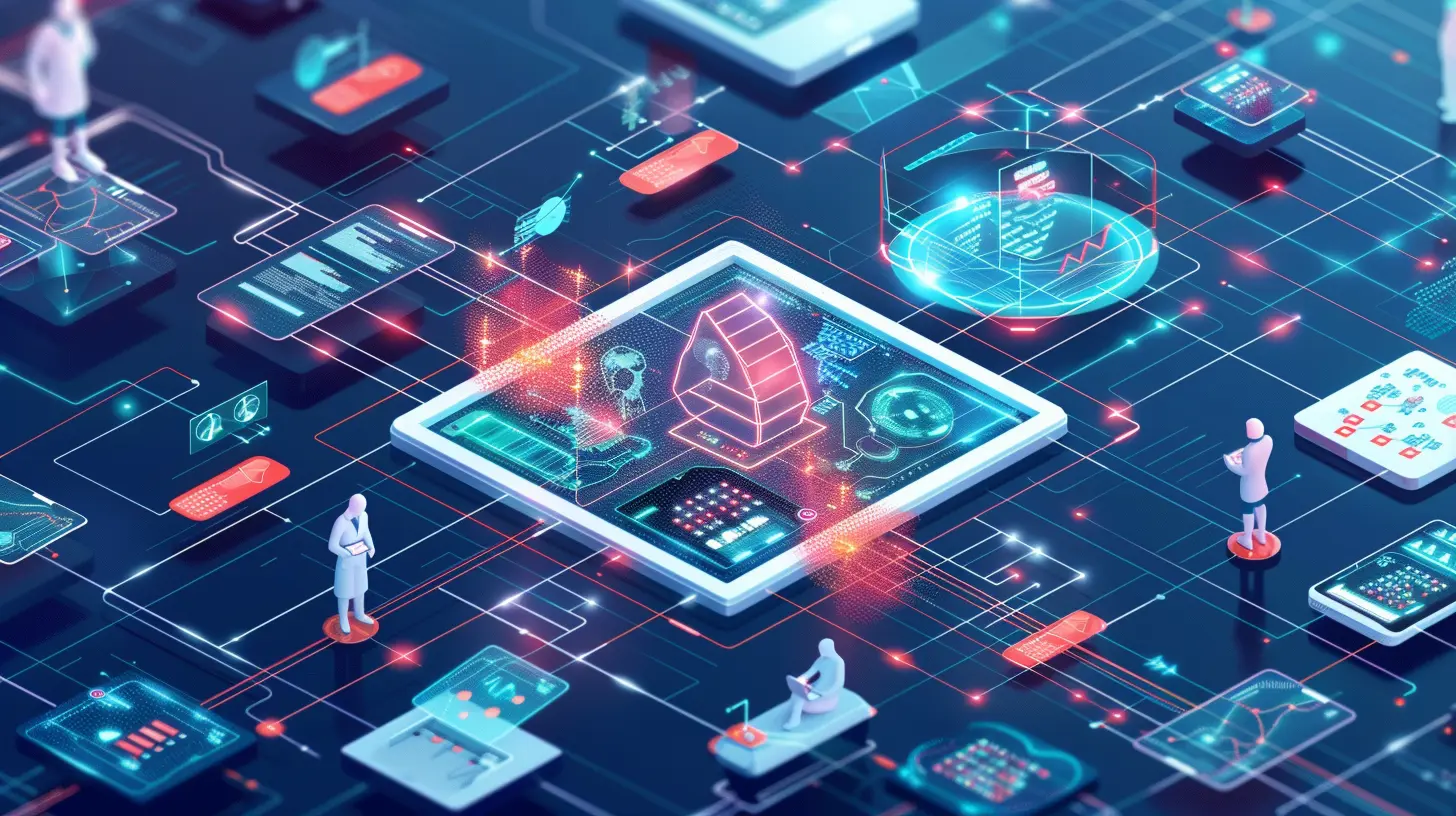
Diagnosing Diseases Faster Than Ever
Gone are the days when you had to wait weeks for test results and diagnoses. AI can analyze X-rays, MRIs, CT scans, and lab results in seconds. Seriously—seconds.Take radiology, for instance. Machines like Google’s DeepMind can scan an image and detect anomalies even skilled radiologists might miss. What’s wild is that these AI systems can sometimes spot diseases at earlier stages than humans can—like catching cancer before it fully takes root.
Is it replacing doctors? Nope. But it’s giving them a high-powered microscope for better decision-making.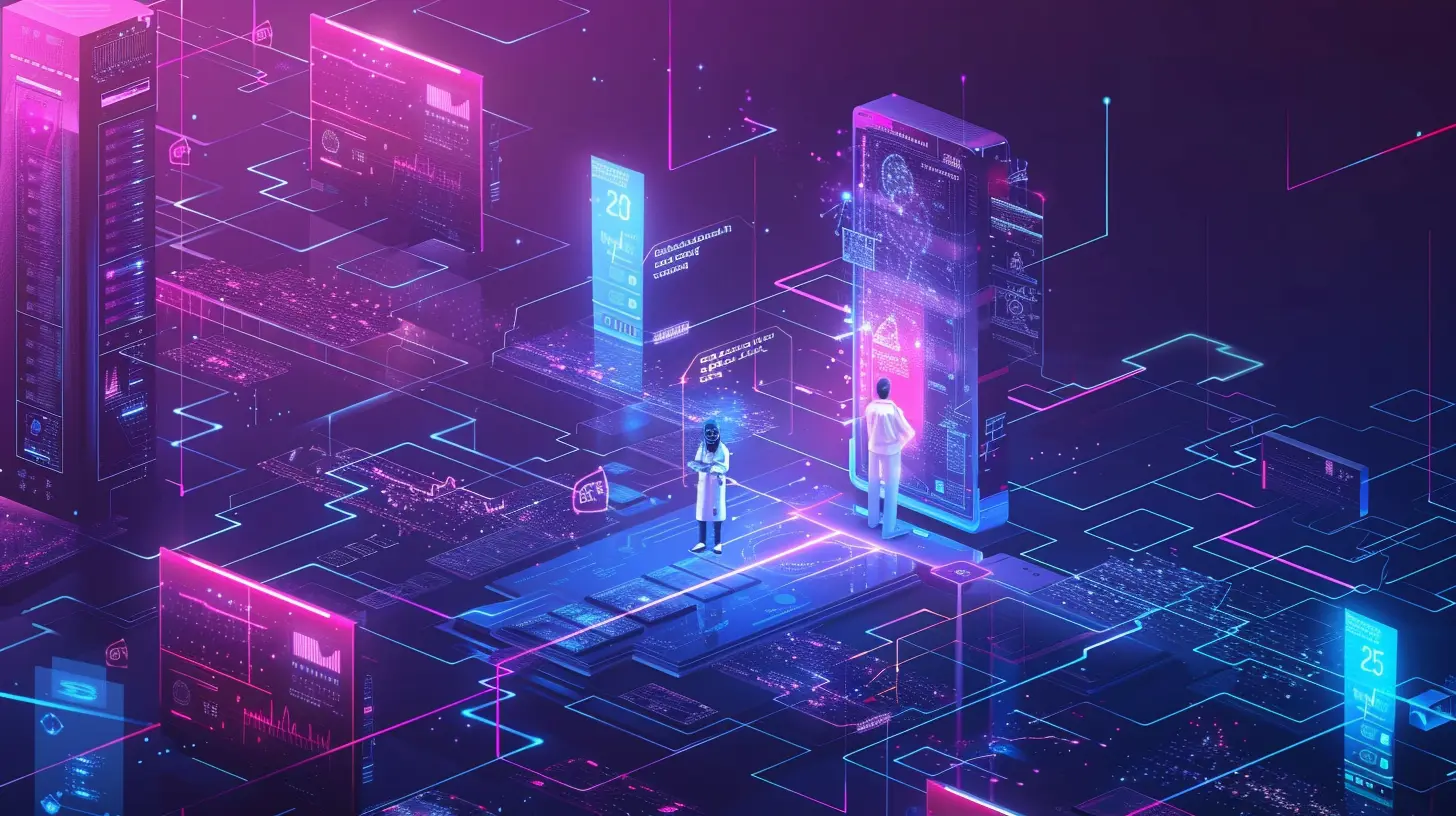
Personalized Medicine: Tailored Just for You
Remember when treatment was a one-size-fits-all deal? Not anymore.AI helps doctors customize treatment plans based on a person’s genetics, lifestyle, and health history. Using predictive analytics, AI can suggest what medication will work best for your body, based on how others with similar profiles responded.
This kind of personalization isn’t just convenient—it can be life-saving. Immunotherapy for cancer, for example, works wonders for some people and not at all for others. AI helps figure out which group you fall into before starting an expensive and emotional rollercoaster.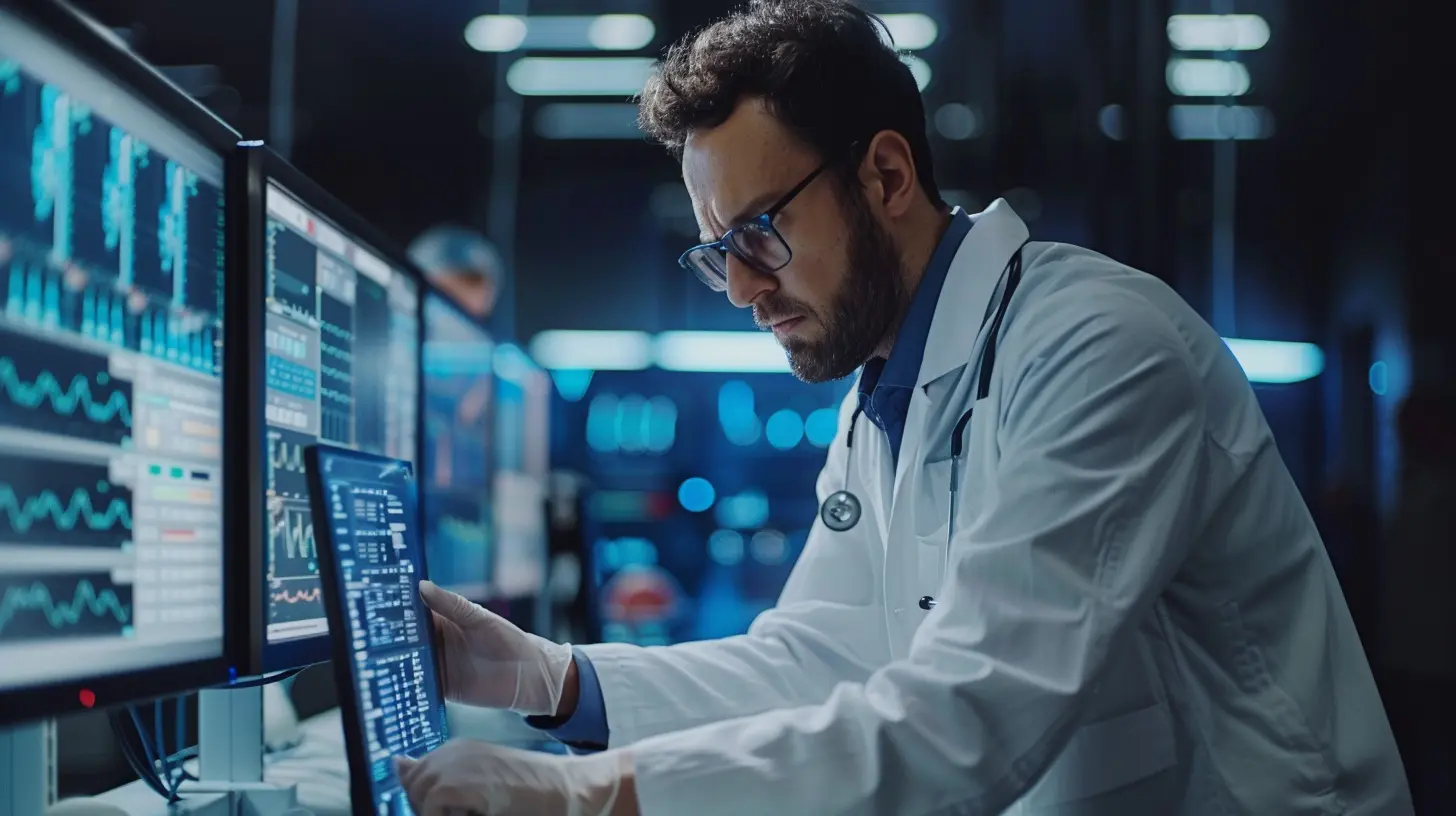
Virtual Health Assistants (No, Not Like Siri)
You’ve probably interacted with chatbots online. Now imagine those bots actually helping you manage your health.AI-powered virtual health assistants can remind you to take your meds, schedule appointments, monitor your symptoms, and even give initial advice on what your symptoms might mean. Not to mention, they’re available 24/7. It’s like having a nurse in your pocket.
And for people with chronic conditions like diabetes, these tools can track vital signs in real-time and alert medical professionals if something looks off. That’s peace of mind—and potentially a life saved.
AI in Surgery: Robotic Precision With a Human Touch
Surgery isn’t what it used to be. Robots like the da Vinci Surgical System, guided by AI algorithms and human hands, are taking precision to the next level.Imagine a surgeon performing a delicate heart procedure with near-zero risk of tremors and minimal blood loss. That’s the magic of AI-assisted robotic surgery. The robot doesn’t replace the surgeon—it enhances them, like a superhero suit.
Not only does this lead to fewer complications, but patients also recover faster. Win-win!
Predictive Analytics: Seeing the Future Before It Happens
Okay, maybe not seeing the future, per se—but pretty dang close.AI can sift through mountains of historical data to predict who’s at risk for what. Heart disease? Diabetes? Alzheimer’s? AI can alert doctors before symptoms even start, just by analyzing your medical records, lifestyle choices, and genetics.
Hospitals are already using AI to reduce readmission rates. It flags high-risk patients so they get extra care and attention before they leave. Fewer readmissions = happier patients and less strain on healthcare systems.
Drug Discovery at Warp Speed
Developing a new drug is expensive, time-consuming, and full of red tape. It takes, on average, 10–15 years and billions of dollars to bring a single drug to market.AI is changing that.
By simulating how different compounds interact with the human body, AI can fast-track the discovery process. During the COVID-19 pandemic, AI was used to identify potential treatment compounds in record time. That’s not just fast—that’s future-level fast.
Plus, AI can predict possible side effects before clinical trials even begin, saving time, money, and lives.
Reducing Errors and Enhancing Safety
Medical errors are one of the leading causes of death—yup, let that sink in.AI's ability to catch mistakes before they happen is kind of like having an all-knowing proofreader for your medical records. It can spot prescription errors, detect anomalies in lab results, and flag unusual symptoms that a busy human might overlook.
Let’s face it—doctors are heroes, but they’re also human. AI helps reduce burnout and makes patient care safer and more consistent.
Streamlining Administrative Work
Ask any doctor what they hate most about their job, and chances are it’s paperwork.AI can automate a huge chunk of administrative tasks like billing, coding, and updating electronic health records (EHRs). That means doctors spend less time at the computer and more time with patients. And let’s be honest—nobody went to med school to become a data entry clerk.
It also helps hospitals operate more efficiently by predicting patient flow, optimizing staffing, and even reducing wait times. That’s some much-needed relief for overburdened systems.
Mental Health Gets a Tech Boost
Mental health is finally getting the attention it deserves—and AI is playing a big role.Apps powered by AI can monitor your mood, detect signs of depression or anxiety, and even provide cognitive behavioral therapy (CBT) exercises. They’re not a replacement for professionals, but they’re a great first step, especially for people who aren’t ready to seek face-to-face help.
More advanced systems can detect subtle vocal changes or facial expressions that might indicate mental distress. Imagine being flagged for help before you even realize you need it. That’s powerful.
Ethical and Privacy Concerns (Because It’s Not All Sunshine)
Let’s pause for a second—AI isn’t perfect, and it’s not without challenges.What happens if an AI misdiagnoses a patient? Who’s responsible? And what about data privacy? These machines need personal health data to learn and grow, but how do we make sure that information stays secure?
Bias is another biggie. If AI is trained on data that’s skewed, its decisions can be, too. That means inequality in healthcare could worsen if we’re not careful.
This is why transparency, regulation, and constant human oversight are crucial. AI isn’t a magic wand—it’s a tool. And like any powerful tool, it needs guardrails.
The Road Ahead: Where Is This All Going?
We're only scratching the surface of what AI can do in healthcare. As technology evolves, we’ll see even more seamless integrations, smarter algorithms, and perhaps, one day, fully autonomous diagnostic systems.Imagine a future where your smartwatch detects a cardiac anomaly, notifies your doctor, and automatically schedules an appointment—all before you feel the first symptom.
That’s not sci-fi. That’s what’s coming.
But at the core of all this tech is a very human goal: better care, faster solutions, and healthier lives.
Final Thoughts
AI is revolutionizing healthcare—not by replacing doctors, but by empowering them. It’s like upgrading from a toolbox to a jetpack. The possibilities are thrilling, but we have to tread wisely.So next time someone says, “AI is coming for your job,” you can say, “Maybe. But in healthcare, it’s coming to save your life.
all images in this post were generated using AI tools
Category:
Artificial IntelligenceAuthor:

Jerry Graham
Discussion
rate this article
1 comments
Mandy Franklin
Great insights! AI's potential in healthcare is transformative. Looking forward to seeing more advancements that enhance patient care and outcomes.
October 2, 2025 at 3:01 AM

Jerry Graham
Thank you! I share your enthusiasm for the transformative potential of AI in healthcare. Exciting advancements are on the horizon!

